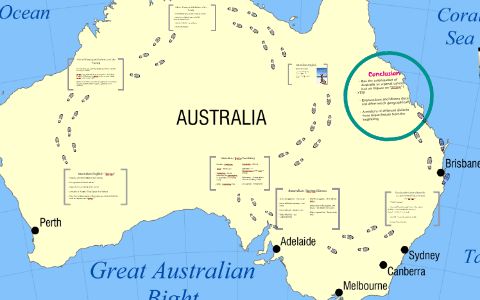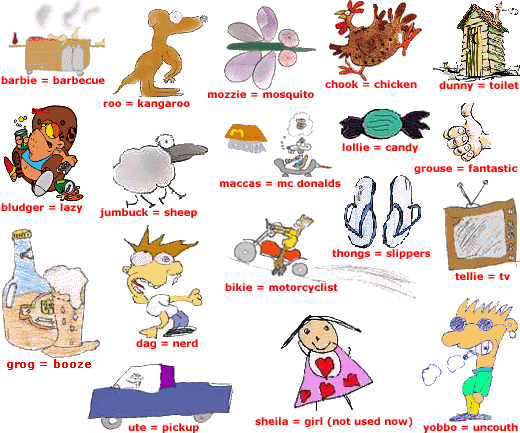Evolution of Australian English: From Strine to Strewth!
Evolution of Australian English: From Strine to Strewth!

Australia, a land of vibrant culture, diverse landscapes, and unique wildlife, also boasts a distinct linguistic identity – Australian English. This fascinating dialect, affectionately nicknamed "Strine," has evolved over centuries, reflecting the nation’s history, multicultural influences, and the spirit of its people.
From the First Fleet to the 21st Century: A Journey of Linguistic Transformation
Related Articles: Evolution of Australian English: From Strine to Strewth!
- A Taste Of The Outback: Exploring Australia’s Native Fruits
- The Taste Of Sunshine: A Deep Dive Into Australian Pure Fruits
- Navigating The Terrain: Understanding The Aboriginal Peoples Of Canada Adaptations Regulations (Firearms)
- Beyond The English Names: Exploring The Richness Of Aboriginal Bird Names
- Native Historical Site VictoriaTitle
The story of Australian English begins with the arrival of the First Fleet in 1788. The convicts and their guards brought with them the English language, but the harsh realities of life in a new land, coupled with the isolation from Britain, led to the gradual development of a unique dialect.
Early Influences:
- Convict slang: The harsh conditions and the need for a secret code among convicts contributed to the emergence of unique vocabulary and pronunciation. Words like "cobber" (mate), "strewth" (an exclamation of surprise), and "dinkum" (genuine) became ingrained in the language.
- Aboriginal influence: While the extent of Aboriginal influence on Australian English is debated, there is evidence of borrowed words like "boomerang," "kangaroo," and "coolibah."
- Isolation from Britain: The distance from Britain meant that Australian English was less affected by linguistic changes happening in the mother country, leading to the preservation of older forms of English.
The 19th Century: A Period of Growth and Divergence:

The 19th century witnessed significant growth in Australia’s population and its economy. The gold rushes brought a wave of new settlers, further enriching the linguistic landscape. The development of newspapers and literature also played a crucial role in standardizing Australian English.
- Regional variations: The vastness of Australia led to the emergence of regional accents and dialects, adding further complexity to the language.
- American influence: The increasing trade and cultural exchange with the United States during the 20th century introduced Americanisms into Australian English, such as "truck" and "gas."

The 20th Century: A Time of Modernization and Globalization:
The 20th century saw Australia embrace modern technology and global communication. While retaining its unique character, Australian English became more aligned with international standards, especially in formal contexts.
- Broadcasting and mass media: Radio and television played a significant role in shaping Australian English, promoting a more standardized pronunciation and vocabulary.
- Multiculturalism: The increasing diversity of Australia’s population brought new words and expressions into the language, reflecting the rich tapestry of cultures.

21st Century: A Hybrid Language in a Digital World:
Today, Australian English continues to evolve, adapting to the demands of the digital age and globalized communication.
- Internet and social media: The internet and social media have accelerated the spread of slang and informal language, making Australian English more dynamic and accessible.
- Global influence: Australian English continues to be influenced by other English dialects, as well as by languages spoken by its diverse population.
Distinctive Features of Australian English
Australian English is characterized by a number of unique features, including:
- Pronunciation: Australian English has a distinctive accent, often described as "broad" or "lazy." Vowels are pronounced differently, and the "r" sound is often dropped at the end of words.
- Vocabulary: Australian English boasts a wealth of unique words and expressions, many of which are humorous and colloquial. Examples include "fair dinkum," "sheila," "mozzie," and "barbie."
- Grammar: Australian English uses some grammar structures differently than British or American English. For example, the use of "have a go" instead of "try" and the omission of the definite article "the" in some phrases.
The Enduring Appeal of "Strine"
Despite its evolution, Australian English remains a vibrant and dynamic language that reflects the spirit of the nation. Its unique vocabulary, pronunciation, and grammar continue to be a source of pride for Australians and a fascination for those outside the country.
Here are some reasons why Australian English continues to be loved and appreciated:
- Humor and wit: Australian English is known for its playful and humorous use of language, often incorporating slang and colloquialisms to create a light-hearted and engaging tone.
- Authenticity and identity: The unique features of Australian English contribute to a strong sense of national identity, connecting Australians through shared language and cultural experiences.
- Accessibility and informality: Australian English is generally considered to be more informal and accessible than other English dialects, making it easier for people to understand and connect with.
The Future of Australian English
As Australia continues to evolve as a nation, so too will its language. The increasing influence of global communication, multiculturalism, and technological advancements will undoubtedly shape the future of Australian English. While it’s impossible to predict what the language will look like in the decades to come, one thing is certain: Australian English will remain a unique and vibrant expression of the nation’s culture and identity.
FAQ about the Evolution of Australian English
Q: Is Australian English considered a separate language?
A: No, Australian English is considered a dialect of the English language. While it has its unique features, it remains mutually intelligible with other English dialects.
Q: What is the origin of the term "Strine"?
A: "Strine" is a playful abbreviation of "Australian." It was coined in the late 19th century as a way to describe the unique sounds and features of the Australian dialect.
Q: How does Australian English differ from British English?
A: Australian English has diverged from British English in several ways, including pronunciation, vocabulary, and grammar. Some notable differences include the pronunciation of vowels, the use of slang words, and the omission of the definite article in some phrases.
Q: Is Australian English influenced by other languages?
A: Yes, Australian English has been influenced by a variety of languages, including Aboriginal languages, American English, and languages spoken by immigrants. This multicultural influence has enriched the language and added to its unique character.
Q: Is Australian English becoming more standardized?
A: While Australian English has become more standardized in formal contexts, regional variations and colloquialisms continue to be prevalent in informal speech and writing. This dynamic balance reflects the diversity and vibrancy of the Australian language.
Q: What are some of the most popular Australian slang words?
A: Some of the most popular Australian slang words include "fair dinkum," "sheila," "mozzie," "barbie," "strewth," "cobber," and "drongo." These words are often used in everyday conversation and reflect the humorous and informal nature of Australian English.
Q: How can I learn more about Australian English?
A: There are many resources available for learning more about Australian English, including dictionaries, websites, and books. You can also watch Australian television shows and movies, listen to Australian music, and interact with Australians to gain a better understanding of the language and its unique features.

Closure
Thus, we hope this article has provided valuable insights into Evolution of Australian English: From Strine to Strewth!. We hope you find this article informative and beneficial. See you in our next article!


